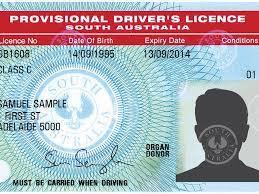In today’s digital age, fake ID websites like FakeIDTemplates.org have gained significant attention. These sites offer downloadable templates for individuals looking to create counterfeit identification documents such as driver’s licenses, state IDs, and even passports. While these platforms may seem convenient, the question arises: are they safe, or are they scams? This article https://fakeidtemplates.org/ will explore the potential risks, safety concerns, and what users need to know before engaging with such sites.
What Is FakeIDTemplates.org?
FakeIDTemplates.org is a website that provides users with downloadable templates for creating counterfeit IDs. These templates are designed to mimic legitimate government-issued identification documents, making it easier for individuals to bypass age restrictions, security checks, or engage in identity fraud. The templates are available for various types of IDs, including driver’s licenses, state IDs, and even foreign passports.
While the site offers convenience and accessibility, it is crucial to remember that the use of counterfeit IDs is illegal in many jurisdictions. The ease of creating fake IDs from these templates has led to concerns about the ethical and legal implications of using such services.
Is FakeIDTemplates.org Safe to Use?
The safety of using FakeIDTemplates.org is a major concern. Although the website may appear legitimate on the surface, users must be cautious. One key issue is the risk of personal data theft. Many counterfeit ID websites, including FakeIDTemplates.org, require users to input personal information such as their name, address, and sometimes payment details. Without adequate security measures in place, this sensitive information could be exposed to hackers or sold to third parties.
Moreover, some websites that offer fake ID templates may not operate with the same standards of privacy protection as legitimate businesses. If a website lacks encryption or fails to properly safeguard user data, it could lead to identity theft or fraud. Users are essentially trusting the platform with their personal information, which, in some cases, may not be secure.
The Risk of Malware and Phishing Attacks
Another significant danger when navigating sites like FakeIDTemplates.org is the risk of encountering malware or phishing attacks. Since fake ID websites often operate in the shadows of the internet, there is a high likelihood that they may attempt to scam users by distributing malicious software. This could include viruses, ransomware, or spyware that can infect a user’s device once they download a template or click on a suspicious link.
Furthermore, some counterfeit ID sites use phishing tactics to collect personal data. For example, users may be prompted to provide personal details under the guise of customizing their fake ID. These websites may then use this information for identity theft or sell it to third-party criminals.
Are Fake ID Websites Legal?
The legality of using sites like FakeIDTemplates.org is a pressing issue. The creation and use of fake IDs are illegal in most countries, including the United States, where penalties for possessing or using counterfeit IDs can range from fines to imprisonment. Even though websites like FakeIDTemplates.org may operate in a gray legal area, the act of creating, possessing, or using fake IDs is still a criminal offense in many jurisdictions.
In addition to criminal penalties, using fake IDs can also have long-term consequences, such as damage to one’s reputation, loss of job opportunities, or difficulty traveling internationally. It’s also important to note that law enforcement agencies are increasingly aware of counterfeit ID websites, making it easier for them to track down individuals who engage in these illegal activities.
How to Spot FakeIDTemplates.org Scams
One of the best ways to protect yourself when using websites like FakeIDTemplates.org is to recognize potential scams. Some red flags to watch out for include:
Lack of Contact Information: Legitimate websites typically provide a way for users to contact customer support or seek assistance. If a site lacks this information or only provides vague contact details, it could be a scam.
Suspicious Payment Methods: FakeIDTemplates.org may accept payment methods that are difficult to trace, such as cryptocurrency or untraceable gift cards. This is a common tactic used by fraudulent sites to avoid detection.
No Clear Refund Policy: Reputable businesses offer clear refund or return policies. If a website lacks transparency in its payment and refund procedures, this could be a sign that the site is a scam.
Unsecure Website: If the website is not encrypted (indicated by “https” in the URL), it is a significant risk to enter any personal or payment information.
The Ethical Implications of Using Fake IDs
Aside from the legal and safety risks, there are also ethical considerations when it comes to using fake IDs. The use of counterfeit identification undermines the fairness of regulations designed to protect public safety, such as age restrictions on alcohol and tobacco. Additionally, using fake IDs to impersonate someone else can lead to identity theft, financial fraud, and other crimes that have serious consequences for both the individual and society at large.
While some individuals may justify the use of fake IDs as a harmless way to gain access to certain services, the ethical implications cannot be ignored. By engaging in such activities, users are participating in a form of dishonesty that can have ripple effects beyond their personal experience.
Navigating fake ID websites like FakeIDTemplates.org requires careful consideration. While these sites may appear convenient and appealing, they come with a range of risks, from malware and data theft to legal penalties and ethical issues. It is crucial to understand the potential consequences before engaging with such platforms.
The best advice is to avoid using or creating fake IDs altogether. Not only are they illegal in many places, but they also expose users to numerous risks. Instead, consider legal alternatives to achieve your goals. Protect your privacy, stay within the bounds of the law, and avoid engaging in activities that could jeopardize your future.
Navigating Fake ID Sites: Is FakeIDTemplates.org Safe or a Scam?

